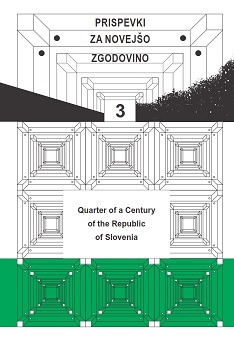Reconciliation Instead of History
Reconciliation Instead of History
Author(s): Bojan GodešaSubject(s): Political history, Social history, Fascism, Nazism and WW II, Sociology of Politics, Politics of History/Memory
Published by: Inštitut za novejšo zgodovino
Keywords: World War II; reconciliation; cultural struggle ("Kulturkampf"); historiography; revision;
Summary/Abstract: The discussion focuses on the issue of reconciliation, which had become increasingly notable in the Slovenian society since the middle of the 1980's and culminated in the ceremony in the Kočevski rog forest in July 1990. Even before that solemn event, the Presidency of the Socialist Republic of Slovenia and the Slovenian Regional Episcopal Conference gave statements with regard to this issue, which, however, differed from each other significantly. The Presidency of the Socialist Republic of Slovenia emphasized that the purpose of the national and civil appeasement was especially to establish "such a situation in the political and public life of Slovenia where the past no longer represents a burden for interpersonal relations", while the statement of the Episcopal Conference underlined that "only the truth can set us free, represent the basis for reconciliation, and pave the way towards appeasement".In the last twenty-five years the different ways of understanding the question of reconciliation led to the oppositions and ideological divisions in the Slovenian society deepening even further with every reconciliatory declaration.
Journal: Prispevki za novejšo zgodovino (before 1960: Prispevki za zgodovino delavskega gibanja)
- Issue Year: 56/2016
- Issue No: 3
- Page Range: 101-117
- Page Count: 17
- Language: English

